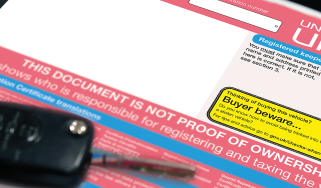How to refinance a car
What is car refinancing and should you consider it?

If you’re watching the pennies or looking for a way to reduce your monthly outgoings you might be looking at your car finance deal and wishing it away. Car finance agreements, be they Personal Contract Purchase (PCP), Hire Purchase (HP) or leasing deals, tend to run for around three years but there is a way to lower those monthly payments before the deal comes to an end, without sacrificing your car.
Refinancing your car is an option that’s available to most people who have cars that they pay for on finance but it isn’t without its drawbacks. In this guide we’re going to look at how you can refinance your car and whether refinancing is likely to be a good idea in your circumstances.
What is car refinancing?
Unlike so many things in the world of car finance, the concept of refinancing a car is a simple one. It involves taking out a new loan to pay-off your existing car finance agreement.
The idea is that the new finance deal you take out will be on terms that are better suited to your needs. This might be a lower interest rate or a longer term to keep your monthly payments down. You might also want to take out a loan to pay off the final balloon payment on a PCP deal.

Should you refinance your car?
This is the big question where car refinancing is concerned. There are pros and cons associated with the decision to refinance and given that most people are considering this option as a means of saving money, it’s crucial that you make sure that it will have the intended positive effect on your bank balance.
If you are refinancing to save money you would need to arrange a new deal with either a lower interest rate or a longer term. Of course, if your new deal is for an extended period you will be paying it off for longer and more interest will be accumulated. The total amount you have to pay back may well increase so you would be opting for lower monthly payments in the short term but paying more in total.
Another reason for refinancing is to take ownership of the car. If you’re on a PCP or HP deal, the finance company owns the car until you’ve paid it all off. You can, however, refinance the car with an unsecured bank loan that pays-off your finance deal and leaves you as the car’s owner with only the bank loan to pay back.
With PCP finance deals, there’s an option to pay the final or ‘balloon’ payment at the end of the deal and become the owner of the car. Some people take out a loan to cover this balloon payment so that they don’t have to pay all the money in one lump sum. This is another form of refinancing.
With any refinancing option that moves you from a PCP or HP car finance deal secured against the car to an unsecured bank loan, you will lose some consumer protections. There will be no option to hand the car back as you will be the owner and the Voluntary Termination clauses built into car finance deals will no longer apply.
When considering refinancing a car it’s vitally important to explore all the options fully and make sure that you are doing the right thing for your finances. You may not be offered an interest rate that is low enough to make the process worthwhile, especially if you have a low credit rating, or the extra money you will have to pay might make a longer contract uneconomical. It will depend on your personal circumstances and the terms you are offered.
How does refinancing a car work?
The actual mechanics of a refinancing arrangement will be handled by the finance company or bank you use to take out your new finance deal or loan. They basically involve the old finance deal being paid off with one lump-sum payment and your new deal starting with different monthly payments under the terms you’ve agreed.
Refinancing can be considered at any point during your contract but you will have to apply and be accepted for any new deal. There are no guarantees that you will get a refinancing offer that makes going through with the process worthwhile.
Something to watch out for when extending finance deals is negative equity. This means that the total payments owed on the finance deal are more than the value of the car and you are paying over the odds to hold onto it.
With any potential new finance deal make sure you understand all the terms and conditions before agreeing to transfer to a different lender. As mentioned, it’s imperative that you work out how changes in interest rate and contract length or any extra fees will affect the overall amount you pay.
Find a car with the experts






